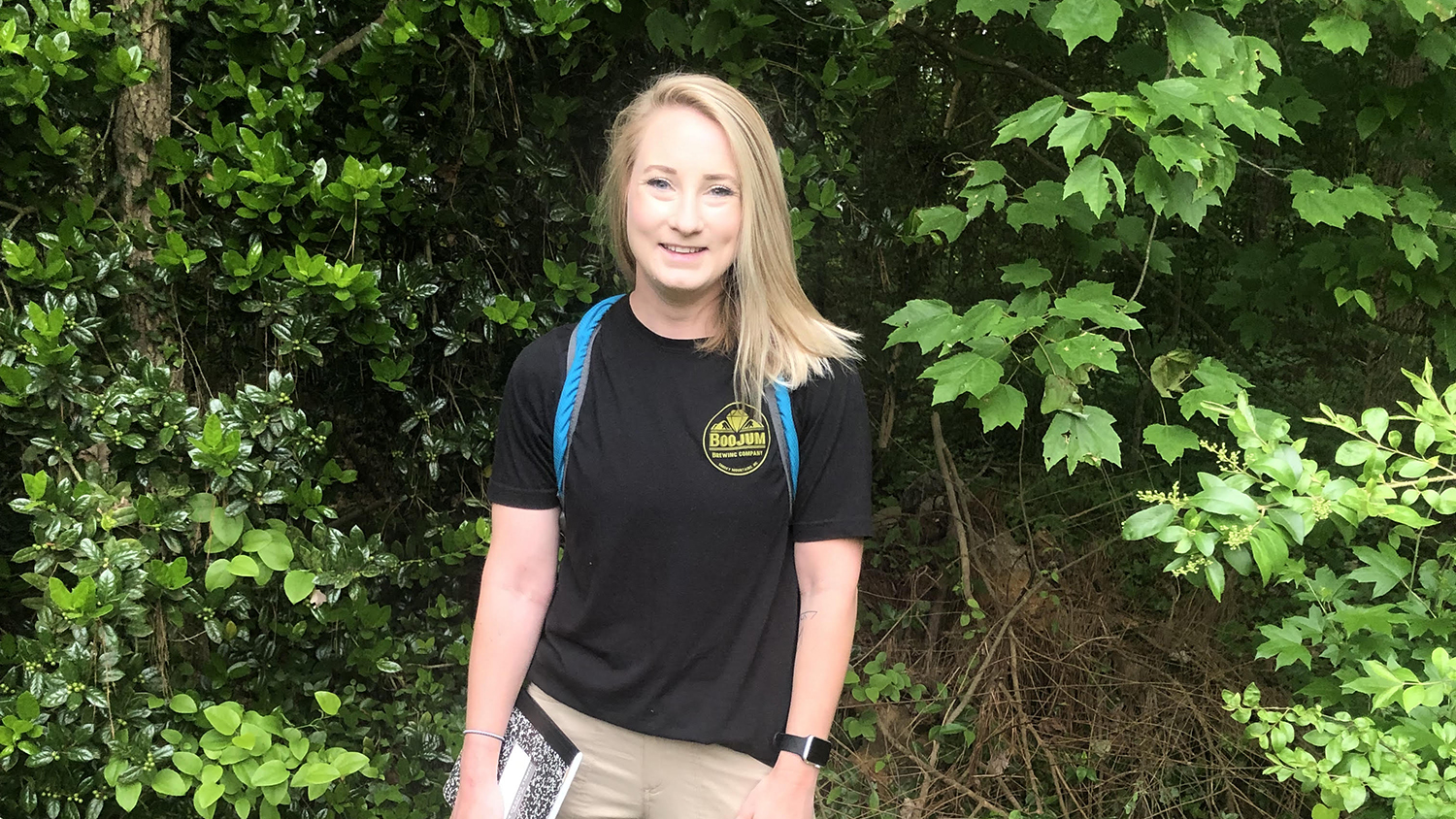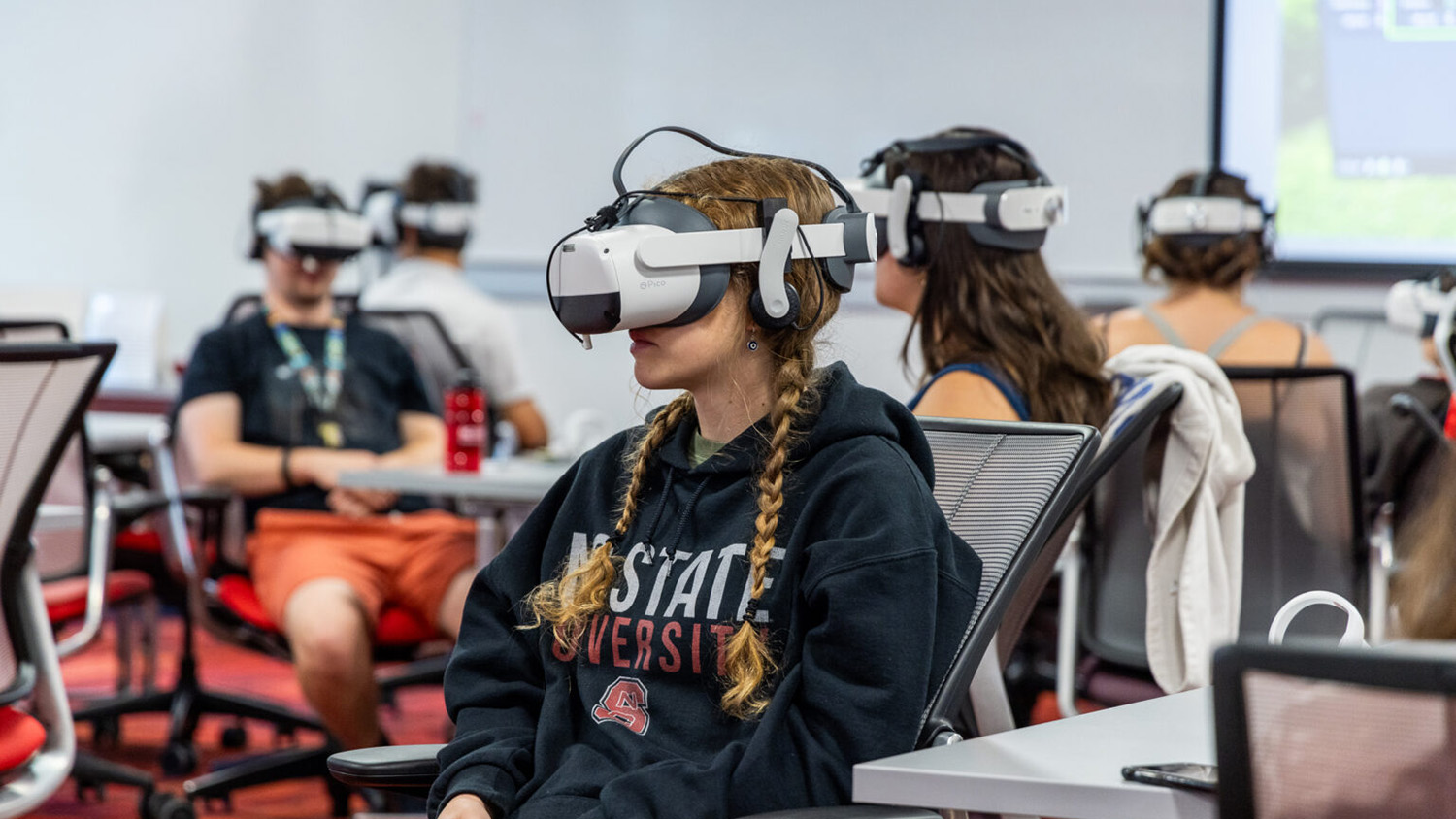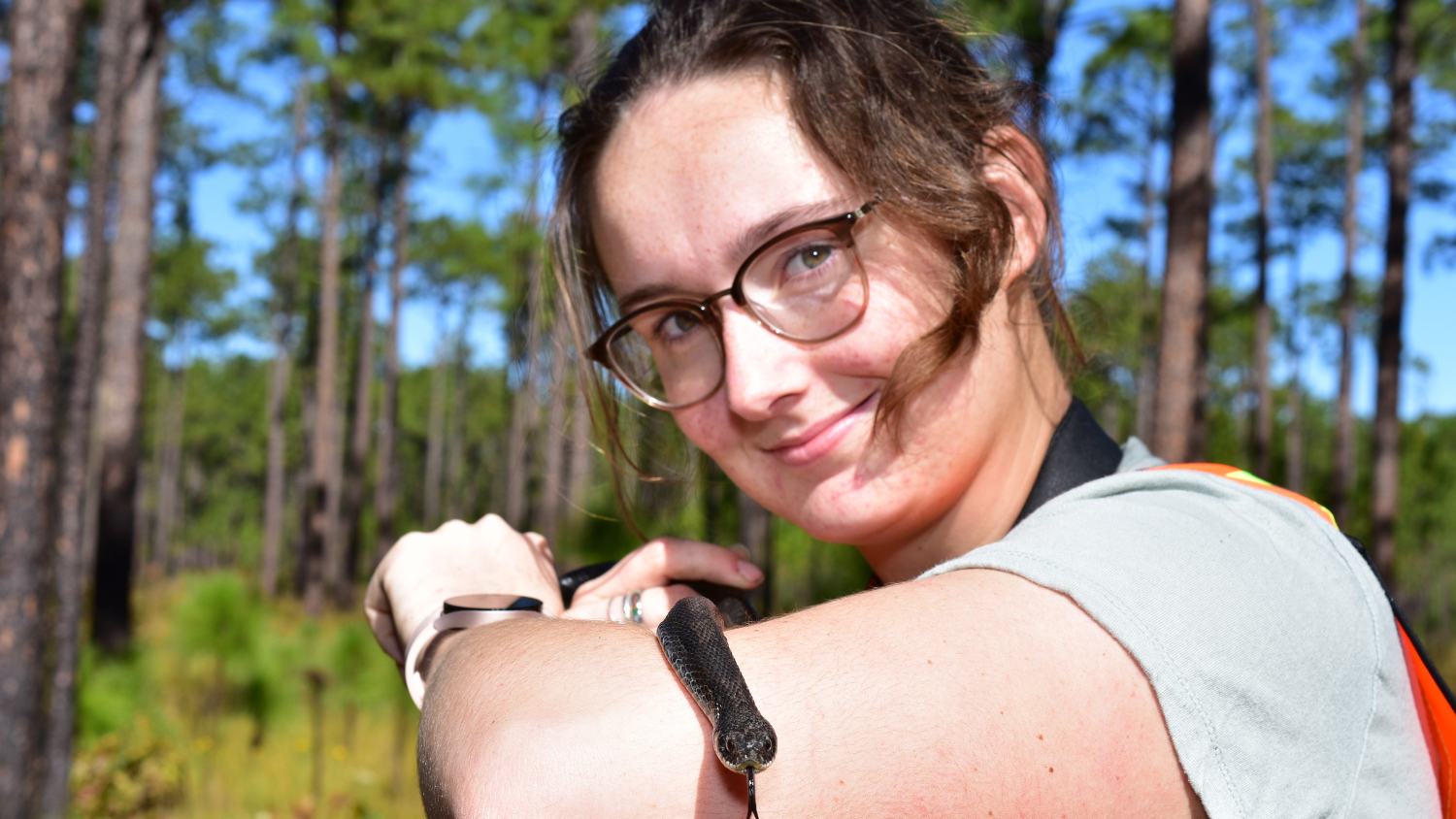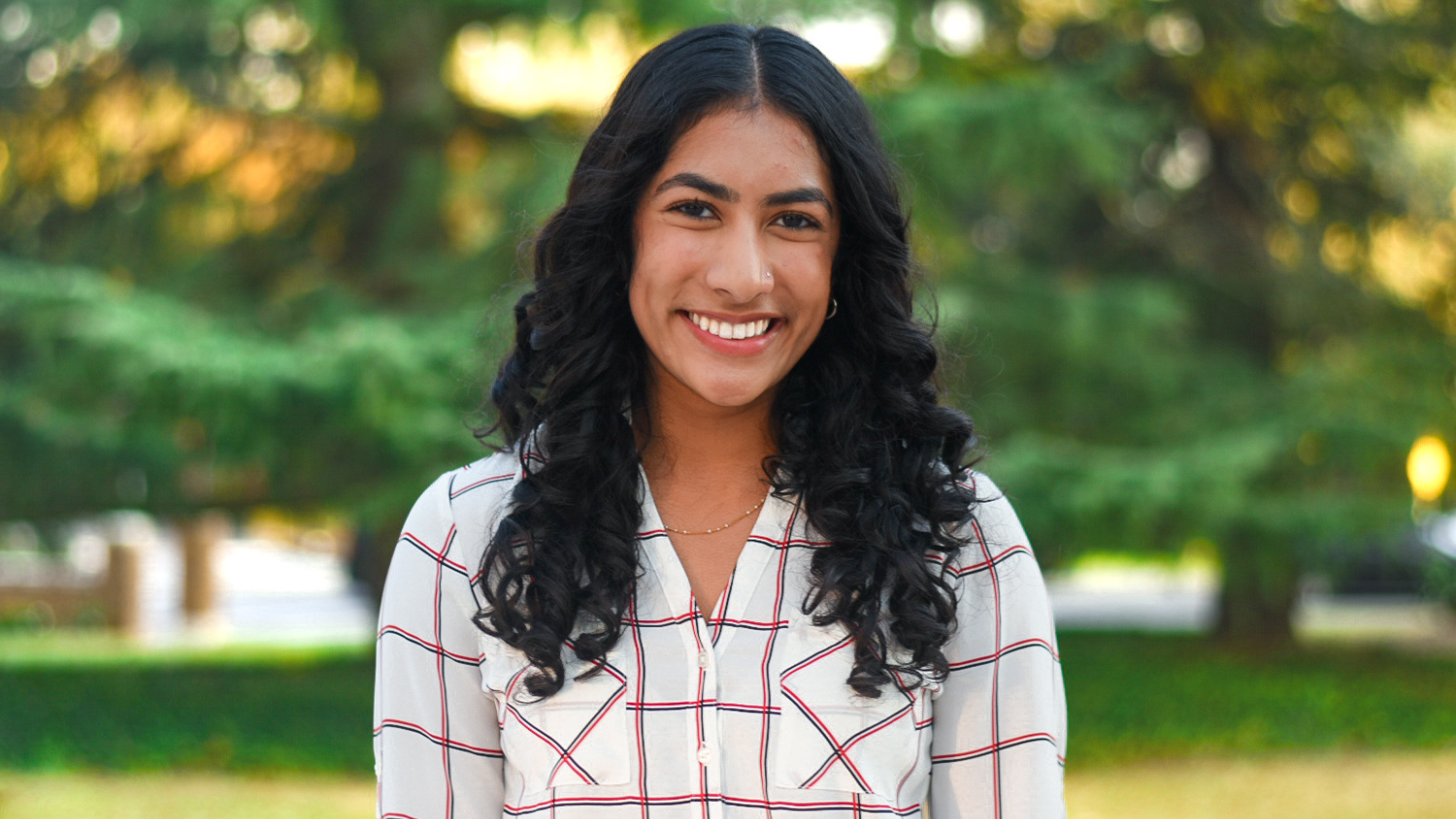Graduation to Vocation: Connecting Others With the Environment through Education

Lauren Lintz is graduating with a Master’s in Natural Resources with a focus in Environmental Interpretation. After graduating, she plans to move to Greenville, South Carolina and will pursue an environmental career. She’s interested in numerous fields including environmental consulting, park management, outdoor recreation, and environmental education.
How has the College of Natural Resources impacted you and prepared you for your future?
Out of all the different programs I have been in, I truly believe that finishing with the College of Natural Resources is the best thing for my college career. This department is so practical and strives for its students to be the most prepared when entering the workforce. Instead of just teaching the theory and science, all of my classes focus on real-world application. Learning how to take what we are taught and how to apply it is something NR does well. They exposed me to so many career paths.
What kind of research or other hands-on/in-the-field learning did you participate in?
My research is working with an Ecovillage to create environmental interpretation opportunities. I use my experience from environmental education and interpretation that I learned from my Parks, Recreation and Tourism (PRTM) class. I also work with the community to identify historical areas for land management and aid with current management practices. My goal is to create an environmental interpretation program that will teach current and prospective members and the general public about the community and their resources, from the soil and trees to the pine forests and wetlands.
Tell us about a faculty member who influenced you.
My advisor, Dr. Zakiya Leggett, has been the most influential. She was the first person to take a chance on me in this department and also puts my education and future first. I remember our first meeting she asked me “How can I help you graduate and find a career?” She was the first person to ask me that and it shows that research isn’t her priority. Her students are. Zakiya has always encouraged me to do what I love and she respects my untraditional path. I see her take on 6 graduate students in one year, have 2 children and 3 foster children, oversee the Doris Duke Program, teach multiple classes, and still see her have deep, meaningful relationships with her students. She is someone I definitely look up to.
What is unique about your work?
The most unique thing about my work is the setting. An Ecovillage is something that most people have no idea what it is. It is a self-sustaining community that strives to live in harmony and justice with the land. They live in partnership with the land. I have learned so much from the community and their perspective on land management, and I wish to help them share their message through environmental interpretation. Environmental interpretation is a mission-based communication that connects someone’s heart and mind to a resource, which is why it is a perfect tool for this unique community.
What advice would you give students entering your major or field?
In the College of Natural Resources, everyone comes from different backgrounds and has different passions, yet we all work together for a common goal. My advice to students coming into this field is to find your passion in life and pursue it, even if that means changing directions or taking a step back. No one will fault you for that. I have been in a program where I felt like I had no purpose but was scared to leave because I thought I had failed. I wish I had someone to help me find my passions and tell me to pursue them, no matter what the norms or expectations.
- Categories:


